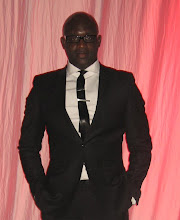Now that you have a deeper understanding of the different learning theories and learning styles, how has your view on how you learn changed?
I don’t believe my view of how I learn has changed much; however, I now have a deeper understanding of the various: I’m also aware that my learning style or how I learn is unconditional, in other words I’m an adaptive learner: leaning that is conducive to the situation. Originally my view of my learning style gravitated towards the Constructivism Theory. According to Etmer & Newby (1993), “Constructivism equates learning with creating meaning from experience” (p. 62). Social constructivist scholars emphasize that individuals make meaning through interactions they have with each other and with the environment they live in (Kim, 2001).
What have you learned about the various learning theories and learning styles over the past weeks that can further explain your own personal learning preferences?
As I continued to study the various learning theories and learning styles, I became more convinced that I learn best using Constructivism, although I may incorporate aspects of other learning styles depending on what I am learning. For example, I recently decided to learn to play the Acoustic Guitar. My initial approach could be describe as using tenets from the behaviorism theory, specifically operant conditioning, which Standridge (2001) states is “the rewarding of part of a desired behavior”. Skinner, the creator of operant conditioning concluded from his research that “people would repeat acts that led to favorable outcomes, and suppress those that produced unfavorable results” Standridge (2001). When learning to play, I would consistently use repetitive actions to produce a desired result, the correct note at the correct time. When I made a mistake, I would stop the behavior that produced the mistake. Consistent practice led to better play. However even in learning to play the Acoustic Guitar: ultimately I would return to constructivism: because I learn and absorb information best where I could learn from watching others play and ask questions. In addition, I’ve discovered that using my previous piano playing experience supported my ability to develop various chords and another musical discipline.
What role does technology play in your learning (i.e., as a way to search for information, to record information, to create, etc.)?
Personalizing technology is a daily routine within my life; from the time that I wake up to performing my job duties and or tasks at work or preparing a recording session in the studio for a vocalist. I utilize my pda (T-Mobile “Click”) to keep track of upcoming events and schedule. I also utilize my phone as an mp3 player with song downloaded form iTunes; however, converted using a song conversion tool.
References:
1. Ertmer, P. A., & Newby, T. J. (1993). Behaviorism, cognitivism, constructivism: Comparing critical features from an instructional design perspective. Performance Improvement Quarterly, 6(4), 50–71.
2. Kim, B. (2001). Social constructivism. In M. Orey (Ed.), Emerging perspectives on learning, teaching, and technology. Retrieved from http://projects.coe.uga.edu/epltt/index.php?title=Social_Constructivism
3. Standridge, M. (2001). Behaviorism. In M. Orey (Ed.), Emerging perspectives on learning, teaching, and technology. Retrieved from http://projects.coe.uga.edu/epltt/index.php?title=Behaviorism
Sunday, February 21, 2010
Subscribe to:
Post Comments (Atom)




No comments:
Post a Comment